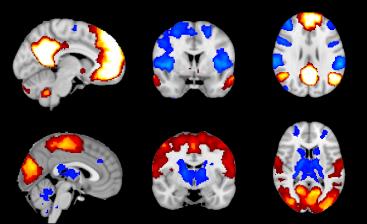Earlier this week, findings from a study in dynamic networks in PSP were published in the Science Direct Journal.
The paper’s lead writer, Dr David Whiteside, shares an introduction to the paper:
“People with progressive supranuclear palsy are affected by changes to their thinking which become more apparent as the disease progresses. There are currently no licensed treatments to help with these cognitive problems, making it crucial that we understand how they come about.
A study at the Cambridge Centre for Parkinson-plus led by Dr Timothy Rittman and Dr David Whiteside investigated how patterns of brain activity are altered in PSP. They used data from Cambridge combined with PROSPECT, a UK-wide study funded by the PSP Association. State of the art MRI techniques identified how long the participants spent in different brain states during the scan.
The study found that participants with PSP spend more time than individuals without the disease in certain brain states, meaning their brain activity was less flexible and less efficient than normal. The time spent in these brain states was more apparent in participants who were more severely affected. The changes in the brain’s activity did not only involve regions of the brain that are most affected by PSP, meaning that effect of the tau protein pathology of PSP has consequences across the whole brain, even where it may appear normal on a scan or have no tau pathology.
This work improves our understanding of how the cognitive changes emerge that affect the lives of people with PSP. It also provides a potential disease biomarker for use in future clinical studies.“
Read the paper in full, here: sciencedirect.com/science/a...!
